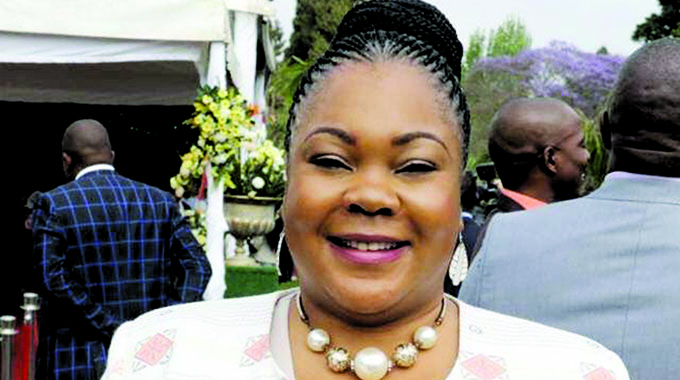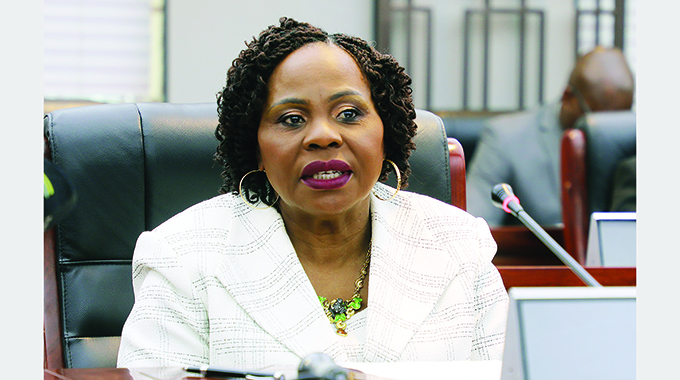Family embodies true meaning of Pfumvudza

Rumbidzayi Zinyuke Senior Reporter
WHEN others are calling it “dhiga ufe” (dig and die), one family in Zaka district has embodied the true meaning of Pfumvudza and last week Mr Consen Mutasa, from Ndanga, was named the Pfumvudza farmer of the year at the Zimbabwe Agricultural Show, where he won a tractor and a trophy.
Mr Mutasa stood before the world as Botswana President Mogkweetsi Masisi congratulated him on his achievement.
He sees Pfumvudza as something you build up, as he recycles his plots and adds to his land under cultivation each year.
For him, the farming method has ensured that his family does not go hungry in a district that is prone to droughts.
From the very small plots, Mr Mutasa got a yield of more than four tonnes, way more than what other farmers have been getting from their plots, and more than he was producing with conventional farming in past years.
To achieve this feat, he had to get rid of the notion that Pfumvudza is difficult first.
“A lot of people believe that Pfumvudza is labour intensive, but this is a misconception. Of course the first year can be difficult because you would be digging holes for the first time, applying manure and preparing the mulching.
“But once that is done and you harvest your maize, we have learnt that we do not have to completely remove the maize stalks. We only cut them halfway through and when it is time to prepare our plots again, we simply use the stalks to guide us on where to dig and place the seed.
“This means the seed is planted where the manure from last season was applied hence we do not have to start afresh, we just add a bit more manure,” he said.
Besides aligning the new holes, the mulching remains in place and the old stalk has kept the ground softer and easier to manage.
Mr Mutasa believes that when done in this way, Pfumvudza becomes a joy, not a punishment.
The Pfumvudza/Intwasa concept was adopted by Government to address the problems of low productivity and low profitability of farming which has been limiting farm incomes at the family level and limiting the harvest at the national level.
Zimbabwe’s “Vision 2030” to become a middle income economy is heavily anchored on the gains from agriculture, but for smallholder farmers, building resilience to climate shocks is the only way to sustain production and livelihoods and so start earning the middle-incomes that a middle income country demands.
For people like Mr Mutasa, who have taken the concept seriously, food security and income is now guaranteed.
“My plots are not more than one hectare but that is enough for me and my family. We even get enough to help some of our relatives who are in need of food assistance.
“For the past eight years since I joined this programme, we have not had to buy grain because we are producing enough to sustain ourselves,” he said.
Mr Mutasa even has enough grain to pay for some of the services he receives on his plot during the season.
But he has not done it alone. The Agritex extension officers in his area have played a major role in getting him and his family to where they are now.
Mr Mutasa said he had produced more grain during the last season than in all the other years he had been practicing conservation agriculture as a result of the knowledge he got from the officers.
“When our extension officers came to us with information on this programme, I decided that I was ready to improve myself so I took what they were teaching us and implemented it. I did everything the way it should be done and it gave me good results,” he added.
For years, more people have been settling in Ndanga so farming space has been getting scarce. This, coupled with the area’s propensity to be adversely affected by drought, has seen Pfumvudza as one of the best ways to ensure food security.
“If you have done your mulching, and have prepared the infiltration pits, moisture is locked in. So when others have crops that are succumbing to the dry spell, mine would go for a month without wilting and then it looks like I have an unfair advantage over others but really, it is just being disciplined and not cutting corners,” Mr Mutasa said.
Ironically, he won a tractor, something that he does not use when preparing his Pfumvudza plots, but which opens many more opportunities for him. He believes his win is the beginning of a new chapter for him, his family and his community.
Because not everyone has been part of the programme, there is still need to till the land. But due to the droughts, many farmers have lost their cattle hence they have no draught power.
Now that he has a tractor, his dream is to get a bigger farm so that he can start producing on a bigger scale.
“I will not stop doing Pfumvudza but I have other pieces of land which I cultivate so this tractor will come in handy. But my biggest dream is to own a farm, even if I get 5 hectares, it will get me far. I know that I am capable of producing more and I appeal to the Government to assist me in getting one,” he said.
Mr Mutasa said the interventions implemented by the Second Republic were making a difference in the lives of rural communities such as his and encouraged all smallholder farmers to take up such initiatives.
“There are people who are now regretting not taking this programme seriously. Remember the extension officers were not working with me only, but our responses were different, I decided to move with it at a faster pace.
“Our Government wants us to be productive, especially here in the rural areas as this will help to improve our livelihoods.
“I believe Pfumvudza is a base for Government’s Vision 2030 and I have learnt that as individuals we need to fix the household economy first which will then contribute to the national economy. Pfumvudza can be one avenue to achieve this,” said Mr Mutasa.
However, he has not done it all alone. His wife, Ms Mavis Shayamano, has been by his side all along, putting in as much effort. She has toiled both in the home and on the field and her happiness that all the hard work has paid off could not be hidden.
“I am happy that we won this award because we have worked hard for it. As a woman, I have been there by my husband’s side taking care of the children and doing just as much in the field. I grew up in a farming family in Gokwe and when I married my husband, we made a good team and this is the result.
“We have learnt the art of working smart and should we decide to plant our maize right now, it will germinate because the ground is still wet due to the mulching and the stalks that we left standing,” she said.
Ms Shayamano said they now aim to apply mulching on more plots so they do not strain themselves when the new season starts.









Comments